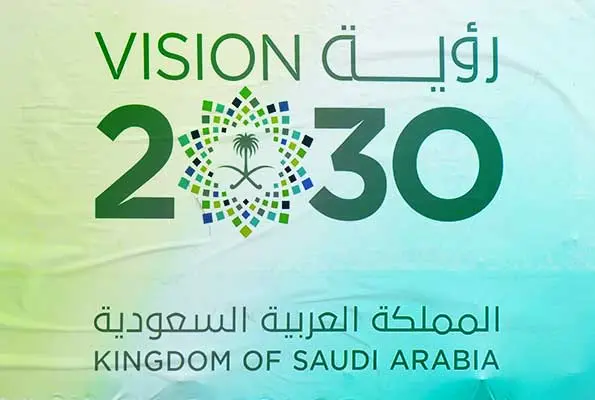Saudi Arabia is weaving artificial intelligence (AI) into its schools in a move few oil-rich countries have attempted. Starting in the 2025-2026 school year, more than six million public-school students, from primary through high school, will learn the basics of AI. This announcement is a bold part of “Vision 2030,” the Kingdom’s plan to diversify its economy away from oil and build a knowledge-based society. By teaching coding, algorithms, and ethics from an early age, Saudi leaders hope to spark innovation and future-proof their workforce. In one Riyadh classroom, for example, students might use simple games or apps to experiment with AI concepts that would have been unheard of just a few years ago. This shift reflects a broader change in Saudi education—moving from rote learning toward creative, tech-driven teaching.
Reforming Education With AI
The AI curriculum is part of a larger overhaul. “Vision 2030” explicitly aims to “reduce dependency on oil, diversify the economy, and build a sustainable, knowledge-based society.” A key pillar of this strategy is human capital development, so the government has revamped the school curriculum and training. In fact, Saudi schools have begun shifting focus from purely religious studies toward subjects like philosophy, art, social sciences, and STEM fields. Within this vision, the new AI subject becomes a flagship project: its designers include the National Curriculum Centre, the Education and IT Ministries, and the Saudi Data & AI Authority.
They created age-appropriate AI units. For example, picture primary school kids learning logic through puzzles and stories, while high-schoolers tackle projects on machine learning or robotics. This layered design ensures each year builds on the last, aiming to cultivate digital literacy and critical thinking at every level of schooling.
This is not just another elective; it’s a social initiative. The government sees a pipeline. Students fluent in AI will become tomorrow’s engineers, entrepreneurs, and data scientists. To support this, Saudi Arabia has introduced complementary programmes. For instance, the SAMAI initiative will train teachers and even non-student citizens in basic AI tools. Over 500,000 people have already signed up for SAMAI workshops, part of a goal to reach one million Saudis.
The Education Ministry and SDAIA have also provided a guide for teachers on using generative AI responsibly in class, emphasising that AI should assist teachers rather than replace them. Even the Custodian of the Two Holy Mosques Scholarship Programme is offering grants for students to study AI and data science abroad.
In 2024, a pilot AI elective engaged over 50,000 high-schoolers across the Kingdom, providing vital feedback through real projects in healthcare and transportation. Officials say that positive pilot results paved the way for the nationwide launch and showed how excited students are when learning feels hands-on.
Impact And Challenges Of The Most Powerful Tech
The AI curriculum is also a milestone for social change. Vision 2030 has pushed hard on gender inclusion, aiming to “increase opportunities for women in education and careers, especially in STEM fields.” Girls and boys alike will now take these courses. This is a dramatic shift, as until recently, girls’ education was more restricted and rarely prioritised subjects like math and science. Now, educators are hopeful that more young women will become coders, engineers, or AI researchers, thus matching the global trend of women in tech.
Of course, big changes bring big challenges. Experts warn that many Saudi schools still need better internet access, computers, and lab space before any new curriculum can fully succeed. Training thousands of teachers to deliver AI lessons is another hurdle. A 2025 study of Saudi elementary teachers found “insufficient teacher training” and “limited access to AI technologies” were major barriers to such reforms.
The government has acknowledged this and plans nationwide training programmes and new EdTech investments to close those gaps. Already, tens of millions of dollars have been invested in updating Saudi classrooms (think smart boards and computer labs) and hiring AI mentors. The pace is fast, but officials admit they will need years of work before AI education is seamless for all students.
Saudi Arabia On The Global Stage
By overhauling its schools, Saudi Arabia hopes to leap ahead in the international AI race. In 2021, Riyadh launched its National Strategy for Data and Artificial Intelligence (NSDAI), aiming to become a “global AI leader by 2030.” Injecting AI education at the primary level directly supports that goal. It means Saudi youth could enter higher education and industry, already thinking about machine learning and robotics.
Globally, few countries offer a formal AI curriculum to millions of schoolchildren. If Saudi Arabia succeeds, it could serve as a model for other nations. Investors and tech firms are certainly watching: a tech-skilled workforce attracts startups and R&D. Meanwhile, Saudi Arabia’s pace is already earning notice. In late 2024, UNESCO commended the Kingdom’s progress in AI, and companies like NVIDIA have partnered on training programmes.
In short, Vision 2030’s AI curriculum is a signal to Saudis and the world that this oil-rich Kingdom is betting its future on silicon instead of just hydrocarbons. By layering AI lessons from first grade up and tying them to a national strategy, Saudi leaders are planting seeds for innovation. It may be years before the full impact is clear, but for now, students in Riyadh, Jeddah, and beyond can brag that they’re learning tomorrow’s tech today.


